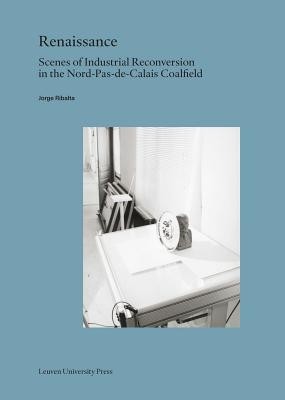
- Išsiųsime per 10–14 d.d.
- Autorius: Jorge Ribalta
- Leidėjas: Leuven University Press
- ISBN-10: 9462701598
- ISBN-13: 9789462701595
- Formatas: 21.1 x 22.9 x 1.8 cm, minkšti viršeliai
- Kalba: Anglų
- Extra -15 % nuolaida šiai knygai su kodu: ENG15
Atsiliepimai
Aprašymas
The Nord-Pas-de-Calais mining region, bordering on Belgium, is part of northern Europe's historical centre of heavy industry, which extends as far as the Ruhr area in Germany. With the end of coal mining in the 1980s, the Lille region transitioned to new economic activities, particularly within the cultural and creative industries, taking advantage of its strategic location midway between Paris, London and Brussels. After de-industrialisation and the 1984 opening of the Lewarde Mining Museum--the first institution of its kind in France--the region took part in industrial heritage campaigns modelled on the Ruhr industrial region. Various historical sites in coal-mining areas in this region and in Belgium were classified as World Heritage Sites by UNESCO in 2012. Renaissance (2014) presents a photographic analysis of the epochal transition from industry to culture and leisure economies and is organised around eight groups of a varying numbers of photographs. It sheds a light on the Nord-Pas-de-Calais mining region's place in the European historyof the capitalist nation-state.
The artist Jorge Ribalta offers a contribution to the critique on the myths and utopian promises of cultural economies. His photographic work interrogates the correspondence between the decline of industrial economies in Europe and the crisis of the middle class.
EXTRA 15 % nuolaida
Kupono kodas: ENG15
Akcija baigiasi už 3d.12:15:01
Nuolaidos kodas galioja perkant nuo 10 €. Nuolaidos nesumuojamos.

- Autorius: Jorge Ribalta
- Leidėjas: Leuven University Press
- ISBN-10: 9462701598
- ISBN-13: 9789462701595
- Formatas: 21.1 x 22.9 x 1.8 cm, minkšti viršeliai
- Kalba: Anglų
The Nord-Pas-de-Calais mining region, bordering on Belgium, is part of northern Europe's historical centre of heavy industry, which extends as far as the Ruhr area in Germany. With the end of coal mining in the 1980s, the Lille region transitioned to new economic activities, particularly within the cultural and creative industries, taking advantage of its strategic location midway between Paris, London and Brussels. After de-industrialisation and the 1984 opening of the Lewarde Mining Museum--the first institution of its kind in France--the region took part in industrial heritage campaigns modelled on the Ruhr industrial region. Various historical sites in coal-mining areas in this region and in Belgium were classified as World Heritage Sites by UNESCO in 2012. Renaissance (2014) presents a photographic analysis of the epochal transition from industry to culture and leisure economies and is organised around eight groups of a varying numbers of photographs. It sheds a light on the Nord-Pas-de-Calais mining region's place in the European historyof the capitalist nation-state.
The artist Jorge Ribalta offers a contribution to the critique on the myths and utopian promises of cultural economies. His photographic work interrogates the correspondence between the decline of industrial economies in Europe and the crisis of the middle class.




Atsiliepimai